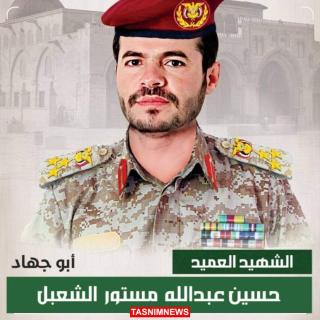
Houthi Missile Forces Colonel Killed at Iraqi Government Base in Jurf al-Sakhar

A senior missile specialist from Yemen was killed alongside Iraqi members of Kataib Hezbollah, underlining the government's cooperation with domestic and foreign terrorist groups.
On July 30, U.S. forces struck a terrorist cell in Jurf al-Sakhar, an enclave of the Iran-backed militia Kataib Hezbollah (KH) located just south of Baghdad. The Defense Department confirmed that the cell was hit while “attempting to launch” a drone. KH announced that four of its members were killed in the strike: “field commander Ahmad Najm Abdal-Zahra (Abu Hassan), along with Hussein Karim Kazem al-Darraji, Haider Hassan Hussein al-Saadi, and Ali Sadiq Omran al-Musawi” (Figure 1).
All four men were official members of the 47th Brigade of the Popular Mobilization Forces, providing further evidence that KH, a U.S.-designated terrorist organization, receives payment and legal cover from the Iraqi government via the PMF framework. According to statements from Iraq's Interior Ministry, the four men were also linked to the the PMF's Jazira Operations Command, which Militia Spotlight has previously identified as a special operational area encompassing parts of central and western Iraq where KH has primacy and can launch drones and rockets at will.
Another revealing aspect of the strike was the death of a mid-level Houthi commander alongside the Iraqi militiamen. According to obituaries issued by the U.S.-designated global terrorist entity Ansar Allah (i.e., Yemen's Houthi movement), Hussein Abdullah Mastour al-Shabal (aka Abu Jihad) was a member of the group who hailed from the Marran Mountains, the heartland of the Houthi clan in Saada governorate.
Iraqi factions tried to justify Shabal's presence on a PMF base by describing him as a participant in “technical intelligence on reconnaissance drones” that were purportedly used to secure Shia pilgrimages to Karbala. In one of his obituary photos, however, he is wearing the red beret of a Yemeni Republican Guard officer and the rank insignia of a brigadier general, meaning he is effectively a full colonel given the Houthi military's habit of inflating ranks by one degree (Figure 2). This would make him a senior officer in the Houthi Aerospace Force, which is responsible for drone and missile operations and mentored directly by Iran's Islamic Revolutionary Guard Corps-Qods Force (IRGC-QF).
Shabal's death points to a tangible, if still token, Houthi role on the ground inside Iraq and sheds more light on the numerous joint claims made in recent months by the "Islamic Resistance in Iraq" umbrella brand and the Houthis. It also means that the Iraqi government, through its PMF units and bases, is providing material support to a U.S.-designated terrorist group from Yemen that has been waging a long campaign of attacks against U.S. military forces and international commercial shipping.




